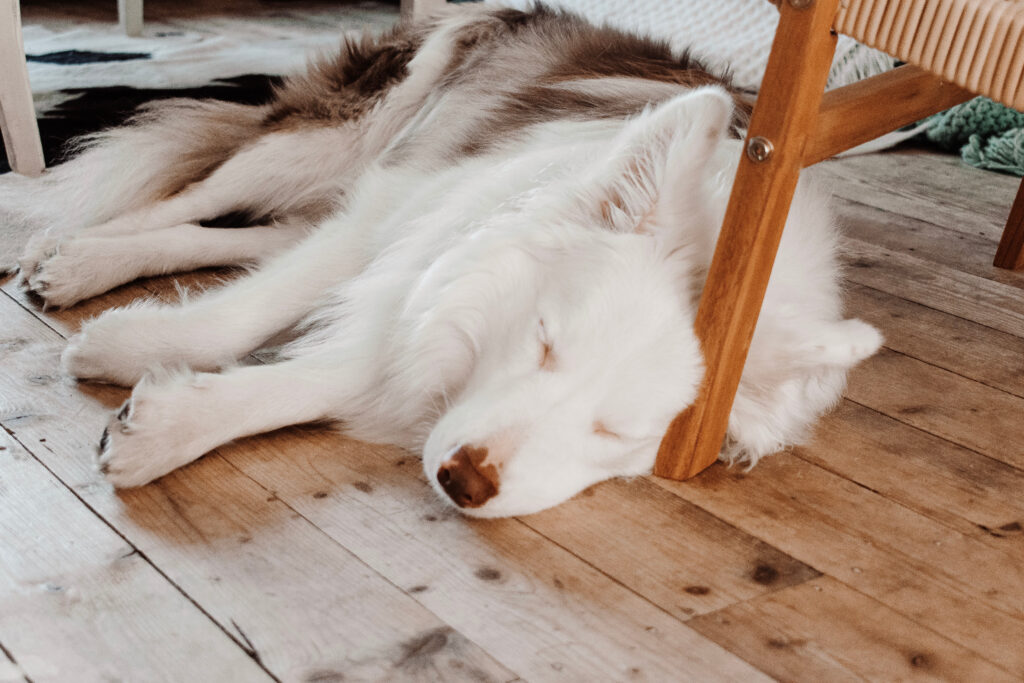Working from home is great, but can present some challenges. Trying to juggle working remotely, maybe kids’ school, other priorities, and finding some time for yourself isn’t easy. The last thing you need is your dog barking over all of it.

For the purposes of this discussion, we’re talking about what is often called nuisance barking. In other words, we’re not talking about your dog barking to alert you that someone is at the door. We’re talking about barking for no good reason (from the perspective of the dog’s humans, that is!). For example, barking at every dog/human/squirrel that passes by the window.
Be careful not to inadvertently reward your dog’s barking
The first thing to do is to make sure that you aren’t accidentally rewarding your dog for barking. It can be so easy to make this mistake without even realizing it. When your dog is barking and you just. need. him. to. stop., it can be easy to go with a quick fix and give him a treat, take him outside, give him some attention just to make the barking stop. BUT, doing this rewards your pup, and makes him more likely to engage in that same behavior in the future. It is, of course, fine to give your dog a treat, attention, time outside, or whatever you think he’ll enjoy, but it’s very important to time it so that you do this at a time when he is NOT barking.
Rather, be proactive to prevent your dog’s barking
Set yourself up for success by by being proactive, rather than reactive. We know it isn’t easy to find the time everyday, but try to carve out some time to walk your dog, as well as giving him mental stimulation. A dog who is pleasantly tired has less energy to burn on barking. (More on how to do that here) Also, check out some of these ideas for fun DIY dog toys.
When your dog does bark, you have two options:
Being proactive, and being careful not to accidentally reward your dog for barking should help to reduce the amount of barking. But it won’t completely prevent it. So, when your dog does bark, you have two options.
First, try ignoring him
This first step will work for some dogs, but not all. When your dog barks, ignore him. Don’t even look at him. If he stops, take that opportunity to praise him.
If necessary, give a correction
If ignoring your dog doesn’t work, escalate to giving a correction. You can use any correction your dog responds to, whether it is a stern “No,” or a sharp clap of your hands, to tell your dog you don’t want him to bark. You’ll need to time the correction carefully so that you don’t give the correction between barks (If you do, you’ll be correcting your dog for stopping barking). Then, once your dog stops, be sure to praise him. And with this, too, you’ll need to time it right so that you don’t praise him while he’s barking.
Of course, these tips will help you manage your dog’s barking in other situations, too, regardless of whether or not you’re trying to work from home.
Good luck! And if you are considering hiring a dog trainer, take advantage of our free phone consultation.

